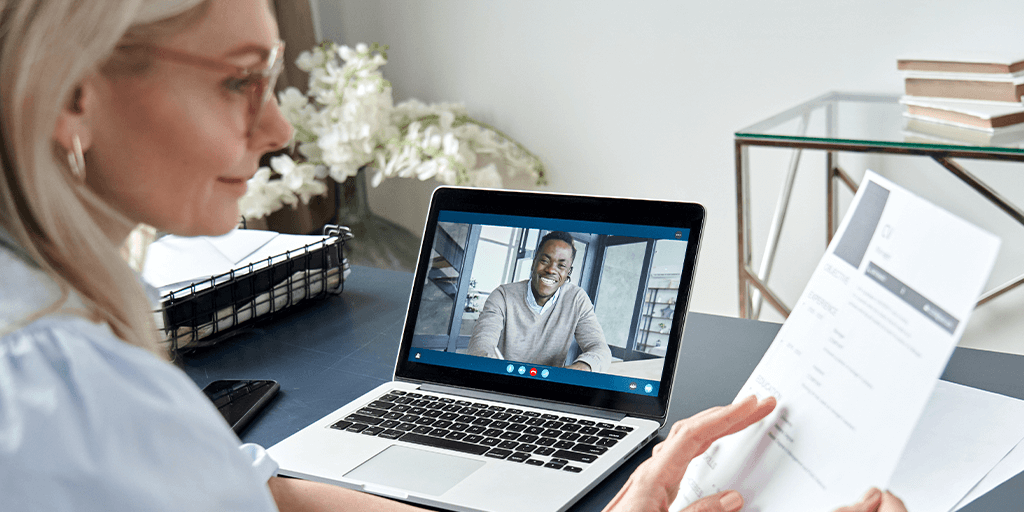Preparing for a job interview can be very intimidating, especially when you start wondering who will be interviewing you, what questions will be asked, what to wear… The unknown can create a significant amount of stress, which can ruin how you perform in the interview. But there is one thing you can do to manage your anxiety and make a winning impression, it’s called: preparation! Here are 6 steps to prepare for a job interview and ace it like a pro!
Learn everything you can about the job, company and interview
Congratulations, you have been invited to a job interview! Now, just like an athlete before a competition, it’s time to prepare yourself to win the employer’s heart. How? Well, it all starts by doing a little bit (a lot!) of research on the company, the job and the interview.
Spend a few hours learning everything you can about the company, from as many sources as possible. Don’t simply look at the information the company publishes on its website or on its social media channels. Look at multiple sources (e.g. news articles, company blog…) to get a broader picture of the company, which will then help you talk about why you would like to work there. Also, try connecting with current and previous employees, in your immediate network or on LinkedIn. They’ll be able to provide you with (extremely) valuable insight on the company and the interview process. This can give you an amazing head start!
Obviously, you also need to spend a good amount of time learning about the role itself. You won’t be able to convince a recruiter that you are the perfect fit for the position, if you don’t know exactly what they are looking for. So go back to the job description you looked at when you first applied. What skills and experiences are important? What problems will this hire need to solve? These are the things you’ll want to emphasize throughout the interview.
But your investigative work doesn’t stop there, Sherlock! There is more to find out… Like who you’ll be meeting with during your interview. For each interviewer, learn what their role at the company is and prepare some questions that are specific to them. Also find out more about the kind of interview you’re in for (one on one with a single person or meeting several people at the same time) and if you don’t know, ask the employer or your HR contact.
Now that you’ve done your research, it’s time to prepare the interview questions.
Brush up on common interview questions
While you won’t be able to predict every question you’ll be asked during the interview, there are a few common questions you can plan answers for. Here are a few common questions identified by the Harvard Business Review, together with tips on how to answer them:
- Could you tell me about yourself and describe your background in brief?
→ Captivate the recruiter with your story; how did you start in the profession, how did you evolve (education, experiences) and what makes you a great candidate today.
- How did you hear about this position?
→ Be honest about who recommended you (e.g. someone in your network), how you sought out the job yourself or why you took the recruiter’s bait.
- What type of work environment do you prefer?
→ Spoiler alert: your preferred environment should closely align to the company’s workplace culture (and if it doesn’t, it may not be the right fit for you).
- How do you deal with pressure or stressful situations?
→ Share an instance when you remained calm despite the turmoil. If it’s a skill you’re developing, explain the steps you’re taking to respond better to pressure.
- Do you prefer working independently or on a team?
→ This depends on the job you are applying for but you might want to highlight both. “I enjoy a blend of the two. I like having a team to strategize with (…) But I am also comfortable taking on assignments that require me to work independently.”
- When you’re balancing multiple projects, how do you keep yourself organized?
→ Discuss a specific instance when you had multiple urgent projects to handle and how you remained organized and focused on the job in front of you.
- What are your salary expectations?
→ Make sure you have an idea of the average salary for the job by checking on Glassdoor beforehand. Remember that it’s often better to discuss a salary range rather than a specific number during the interview and leaving room for negotiation.
- Are you applying for other jobs?
→ If you’re applying for other jobs, don’t be afraid to say so. “I have applied to a couple of other firms, but this role is really the one I’m most excited about…”
- From your resume it seems you took a gap year. Could you tell us why?
→ The best way to answer is to let your interviewer know how your gap year helped you gain new skills and add value to the confident professional you have become.
While preparing questions is essential, it’s also important to master a few interview skills – like the STAR method. Never heard of it? Keep on reading to find out what it’s all about.
Master the STAR interview technique
Perhaps the most tricky questions to answer during a job interview are what we call
situation-based questions, which typically start with prompts like “describe a…”, “give me an example of…”, “have you ever…”, “what did you do when…”. These generally require you to describe a past experience or behavior to illustrate your suitability for the job. The best way to answer these types of questions is through a simple and brief story told in logical order where you explain how you contributed to a successful outcome. This is what we call the STAR technique, which stands for: Situation, Task, Action and Result.
Here’s an example of how to use the START method to answer a common interview question, such as “Tell me about a time when you worked well with a team”.
- Situation: Briefly lay out the scenario. “In my previous job as an event coordinator, I worked with a team of ten to plan and execute major company events. Last year, we collaborated on the company’s annual holiday party for over 500 employees.”
- Task: Describe the task. “There were so many moving pieces. Everyone on our team had different responsibilities, but we all had to work as one to bring the party to life.”
- Action: Discuss what you did and why. “Even though I was the most junior person on the team, I organized a project management system that would allow us to better track the execution of tasks. Everyone loved the virtual task-tracking features.”
- Result: Tell your interviewer about the outcome and what you learned. “Thanks to this new system, our team meetings were far more productive and we managed to finalize arrangements ahead of schedule. Ultimately, our team’s collaboration led to what our CEO called the best holiday party he had ever attended.”
This technique ensures your stories always have a beginning, a middle and an end. It helps you provide context to a situation and respond in the best possible way to a situation-based question. Looking for inspiration? Check out more examples here.
Prepare smart questions for the interviewer
“So, do you have any questions for me?”
In addition to preparing common questions the interviewers might ask you, you should also prepare a few questions to ask them at the end of the interview. Indeed, most employers feel confident about candidates who ask thoughtful questions about the company, the team, the role… So make sure you prepare 2 or 3 questions that show you’ve researched the company and are well-versed about the position. Some examples of questions include:
- What does a typical day look like for a person in this position?
- What are the most immediate projects that I would take on?
- Can you tell me about the team I’ll be working with?
- What’s your favorite part of working here?
- What are the next steps in the hiring process?
Asking questions at the end of an interview isn’t just something you do to look good in front of the employer, it’s a chance to continue to prove yourself and to find out whether this job is the right fit for you. So make sure you carefully choose the questions you will ask!
Practice and get ready to present yourself well
Your preparation is nearly done, but there are still a few more things you can do… If you have the time, we recommend you do a few mock interviews with a friend or a loved one. You’ll be much better at answering, “What can you bring to this position?” the 50th time you do it, and you’ll know ahead of time how to adjust your tone of voice and body language.
Once you’ve prepped for your interview, it’s time to make sure you walk in looking put together. Unless your interview is over the phone, you’ll need to make sure your physical appearance is flawless (and no, for video interviews, it’s not OK to wear pyjama pants!). Do a little bit of pampering, because looking your best will definitely help you perform at your best. So if you need a haircut or a new interview outfit, then by all means go for it!
Feeling confident? Looking sharp? Great, you’re now ready to meet the interviewer!
Follow up with the employer
Following your interview, you might be tempted to lay down on the sofa for a well-deserved Netflix & Chill evening, but there’s one last thing you should do to leave a good impression on the employer: send a follow-up email. Doing so, will remind the employer of your conversation and will show them you are genuinely interested in the position.
Here’s a good example of a follow-up note:
Hello [Interviewer Name],
Thank you so much for your time today.
It was such a pleasure to meet you and learn more about the team and position. I’m very excited about the opportunity to join [Company Name] and help [bring in new clients/develop world-class content/anything else awesome you would be doing] with your team.
Let me know if I can assist in any way.
Kind regards,
Signature
phone number
It’s simple, really: to nail a job interview (or anything in life), all it takes is preparation. That doesn’t mean you have to spend hours and hours frantically rehearsing all the interview questions you find on the Internet. To prepare well and put your time to good use prior to an interview, it’s best to follow a simple step-by-step method like this one that focuses on what’s most important! One final advice before you go: remember to breathe and take a few seconds to think about the question before answering it. That’s it… Good luck!









